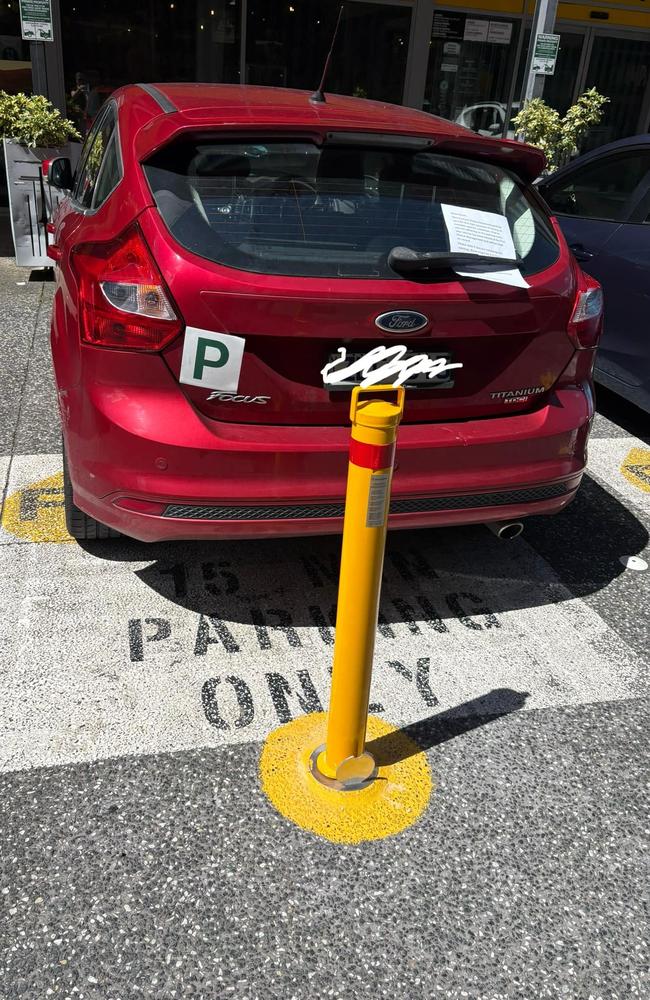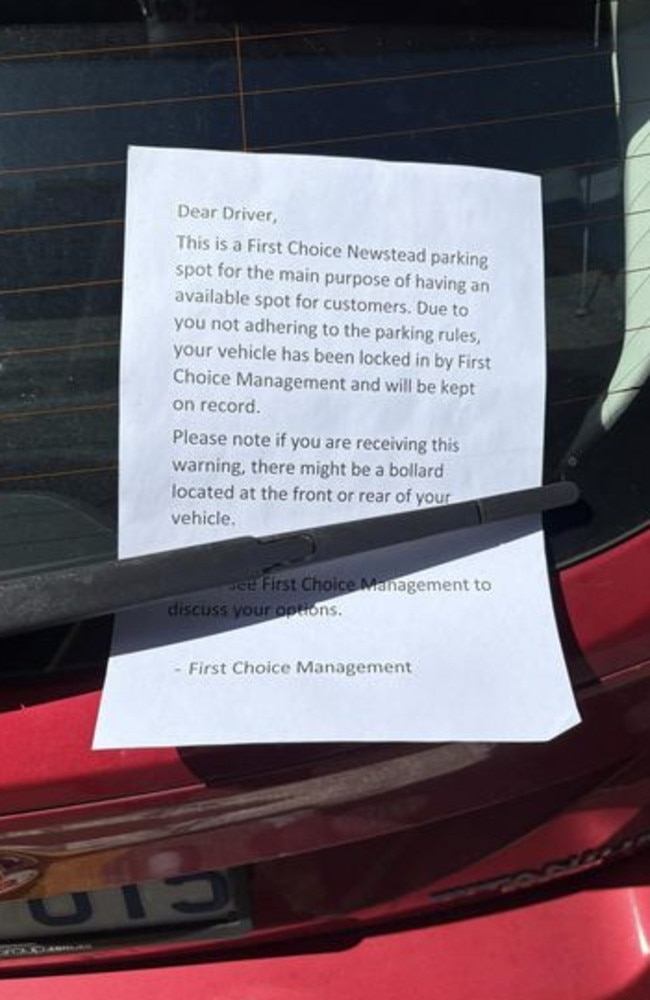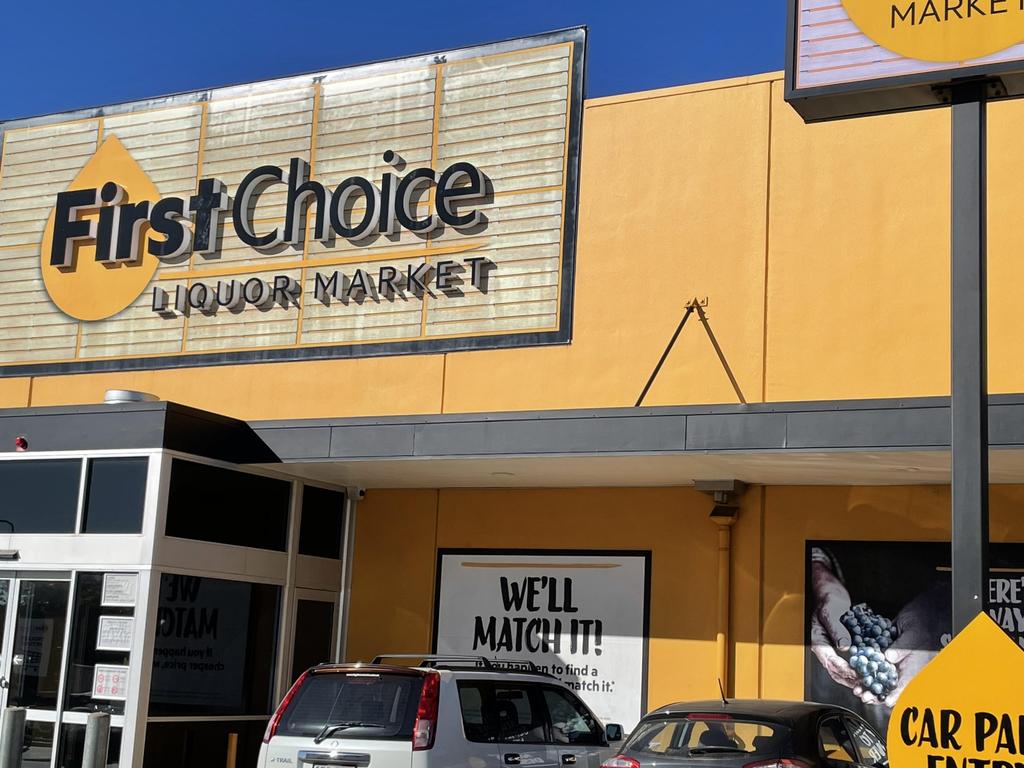‘Threatening’ letter left on parked car at Bottle-o
Coles has responded after a liquor store they own punished a P-plater for an “entitled” car park move.
Staff at a Coles-owned bottle shop have taken drastic action against drivers who violate parking rules outside the store.
Management at the First Choice Liquor Market in Newstead, Brisbane, took matters into their own hands by blocking vehicles parked in their designated 15-minute customer parking spaces.
In a photo shared on a local Facebook group, a red car with P-plates is seen blocked in by a lockable bollard, preventing the driver from leaving.
“First Choice has had enough!” the poster wrote, adding that it wasn’t the only car being punished.
“There were at least two other cars locked in when I was walking by.”

The note
The store employees also left a typed note under the rear windscreen wiper of the blocked vehicle, informing the driver that the parking spaces were reserved for the liquor shop’s customers only.
“Due to your failure to adhere to the parking rules, your vehicle has been locked in by First Choice Management and will be noted in our records,” it warned.
The note then instructed the driver to contact management to “discuss your options.”

Coles responds to the move
Coles defended the decision, with a spokesperson telling news.com.au, “At First Choice Liquor Market, we are committed to providing a great customer experience, which includes parking and clear access to our stores.
“The Newstead store carpark is owned by Coles and has signage throughout the carpark informing locals about parking time restrictions which are also painted on the parking bays.
“To ensure we are making our stores more accessible for customers, our store team may use its discretion to remind the community of the parking rules.”
It is understood that cars are often parked in the car park for extended periods, sometimes overnight, due to a lack of available parking in the high-traffic area.

Commenters were divided
Local residents were divided in the comments, with many condemning the “entitled” driver.
“About time!” one person quipped.
“Don’t park where you shouldn’t,” added another.
“I’ve been there as the store opened, and there were no parking spaces,” shared another group member.
Others felt the driver got off easy.
“They should consider themselves lucky – there was a rogue tow truck operator charging people a fortune after their cars were towed from there a few years ago!” one person wrote.
However, one commenter provided a different perspective, arguing that the store had gone too far and shared concerns about safety.
“The thought of someone’s vehicle being blocked in by a bollard, should an emergency arise, is horrific to think about,” they wrote.
“While I understand this would be frustrating for your shop, it could put someone’s life in danger – something to consider.”
Another commenter claimed, “These spaces are legally unenforceable. The manager here is being a d*ck.”
Is this legal?
According to the Department of Transport and Main Roads in Queensland, “it is illegal to detain a parked or stopped vehicle” on private property “using an immobilising device.”
Section 135(1)(c)(ii) of the Transport Operations (Road Use Management) Act 1995 explicitly prohibits this behaviour.
“A person must not, without the owner’s consent, detain a vehicle parked or stopped on a road or elsewhere by placing an immobilising device near the vehicle,” the law states.
The example given is a “moveable steel post,” commonly known as a “parking sentinel,” which can be secured to the ground at the entrance of a parking space.
However, this situation exists in a legal grey area.
The phrase “without the owner’s consent” implies that if there are signs in the car park outlining the rules, drivers “consent” to these rules when parking.
By entering a private car park, such as those in shopping centres, drivers are essentially agreeing to a set of terms and conditions established by the operator.





